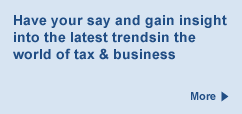Marginal Tax Rates
Newsletter issue - June 2014
What rate of tax would you pay on an additional £1 of earnings? If your annual income is between £41,865 and £150,000 you may think the tax rate would be 40%, but the peculiarities of the UK tax system mean you could pay much more.
To start with earned income above the 40% threshold carries a national insurance charge (NICs) of 2% so for every £1 you earn above £41,865 (for 2014/15) you will pay 42% in tax and NICs.
Child benefit is withdrawn from the highest earner in the family at the rate of 1% of the benefit for each £100 of income exceeding £50,000 per year. This translates into an effective marginal tax rate of 60% on income between £50,000 and £60,000.
When your income exceeds £100,000 your personal allowance is withdrawn at the rate of £1 for every £2 of income above £100,000. This is an effective tax rate of 62% including NICs.
From 6 April 2015 married couples will be able to transfer up to 10% of their personal allowance between them. This will allow up to £1,050 of the allowance to be transferred from the person who earns less than £10,500, to their spouse who earns up to the 40% threshold. Thus £1 of additional income that takes you over the 40% threshold will mean you lose the whole of that transferable allowance - an infinite marginal tax rate.
If you are able to control the level of your taxable income, perhaps because you run your own business, it makes sense to adjust your income to avoid those high marginal tax rates. Perhaps you could employ other members of your family, or take them into business with you as partners, to spread the business income.
Payments of pension contributions and Gift Aid donations can stretch your 40% threshold, so the higher earner in the family should making those charitable donations and pay pension contributions. We can help you plan to avoid the highest tax rates and make the best use of all allowances available.
 Cookies are small text files that are stored on your computer when you visit a website. They are mainly used as a way of improving the website functionalities or to provide more advanced statistical data.
Cookies are small text files that are stored on your computer when you visit a website. They are mainly used as a way of improving the website functionalities or to provide more advanced statistical data.



















